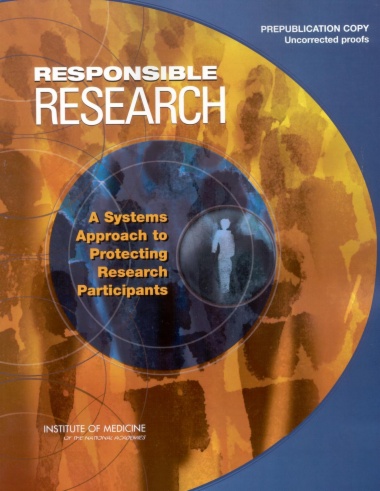

When 18-year-old Jesse Gelsinger died in a gene transfer study at the University of Pennsylvania, the national spotlight focused on the procedures used to ensure research participants' safety and their capacity to safeguard the well-being of those who volunteer for research studies.
Responsible Research outlines a three-pronged approach to ensure the protection of every participant through the establishment of effective Human Research Participant Protection Programs (HRPPPs). The approach includes:
Issues addressed in the book include the need for in-depth, complimentary reviews of science, ethics, and conflict of interest reviews; desired qualifications for investigators and reviewers; the process of informed consent; federal and institutional oversight; and the role of accreditation. Recommendations for areas of key interest include suggestions for legislative approaches, compensation for research-related injury, and the refocusing of the mission of institutional review boards.
Responsible Research will be important to anyone interested in the issues that are relevant to the practice of using human subjects as research participants, but especially so to policy makers, research administrators, investigators, and research sponsors—but also including volunteers who may agree to serve as research participants.